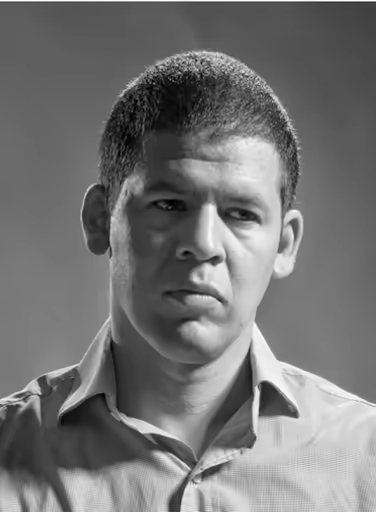Recently, the terms "Diversity," "Equity," and "Inclusion" have become more than just buzzwords within the proficient world. They symbolize a significant change within the way companies approach their workforce, acknowledging the significance of supporting a working environment culture that's not only diverse but equitable and inclusive too. As the founder of Lensa, an AI-powered job board, I have personally observed the transformative influence of embracing diversity, equity, and inclusion (DEI) practices on both workplace culture and recruitment strategies.
Comprehending Diversity, Equity, and Inclusion
Diversity, the initial pillar of DEI, surpasses mere representation. It encompasses various dimensions such as race, ethnicity, gender, age, sexual orientation, socioeconomic status, and more. This intricate mosaic of differences brings together individuals with distinctive backgrounds, experiences, and perspectives. The outcome is a workplace that thrives on ingenuity and innovation, as employees approach challenges and projects from diverse angles.
Photo by John Schaidler on Unsplash
Equity, the second pillar, entails ensuring evenhandedness by addressing historical disadvantages. It extends beyond treating everyone uniformly and focuses on providing equal access to opportunities, resources, and advancement. In an equitable workplace, merit is the propelling force behind recognition and rewards, fostering a sense of justice and contentment among employees.
Inclusion, the third pillar, is the adhesive that unites variety and fairness. It revolves around creating an environment where every employee feels esteemed, respected, and empowered to contribute their unique perspectives. Inclusive workplaces not only amplify employee satisfaction but also elevate productivity and collaboration as employees experience a sense of belonging.
Workplace Culture Transformation
Executing DEI initiatives doesn't just fulfill an ethical commitment; it includes a significant effect on the working environment culture. A diverse and inclusive culture cultivates a sense of belonging among workers, driving higher engagement and retention rates. However, the challenges of cultural incompetence in diverse workplaces can hinder communication and engagement, making it crucial to address these issues for a truly inclusive culture. In addition, a culture of equity guarantees that everybody has equal access to development opportunities, making a positive feedback loop of improvement and fulfillment.
Equitable work environments are more flexible too, as workers see the organization as one that values fairness. This perception fosters loyalty and commitment, contributing to a positive organizational culture. Inclusive cultures, on the other hand, empower open communication and collaboration, breaking down silos and advancing a sense of unity among employees.
For companies committed to embracing diversity, equity, and inclusion, considering a partnership with a Professional Employer Organization (PEO) can provide valuable support. PEOs are experts in navigating complex HR landscapes and can assist in fostering an inclusive workplace. They offer tailored solutions for managing HR tasks, ensuring compliance, and providing comprehensive employee benefits, contributing to an environment that values fairness and equality.
Recruitment Strategies in the DEI Era
Recruitment in the age of DEI is a strategic endeavor that extends beyond traditional methods. Companies prioritizing diversity, equity, and inclusion must integrate these values into their recruitment strategies to attract a diverse pool of candidates.
1. Inclusive Job Descriptions:
Crafting job descriptions with inclusive language that highlights the company's commitment to diversity can attract a broader range of candidates. This small adjustment can make a significant impact on the diversity of the applicant pool.
2. Diverse Sourcing Channels:
To reach underrepresented talent, companies need to utilize diverse sourcing channels. This includes community outreach programs, partnerships with diverse organizations, and attendance at job fairs targeting specific demographics.
3. Unbiased Selection Processes:
Implementing blind recruitment practices removes information that could lead to unconscious bias, ensuring that candidates are evaluated solely on their skills and qualifications.
4. Diversity Training for Recruiters:
Recruiters play a crucial role in shaping the workforce. Providing diversity training helps them recognize and overcome biases, ensuring a fair and inclusive recruitment process.
5. Showcasing Diversity in Branding:
Highlighting a commitment to diversity in branding, such as showcasing diverse employees in promotional materials, on the company website, and across social media platforms, can attract individuals who align with the values of the organization.
Related: 12 Tips For Creating An Attractive Job Offer
Measuring Success: Key Performance Indicators (KPIs) in DEI
To assess the effectiveness of DEI initiatives, companies need to establish and monitor key performance indicators. These KPIs go beyond headcount and delve into the impact of diversity, equity, and inclusion on various aspects of the business.
Photo by Austin Distel on Unsplash
1. Employee Satisfaction and Retention:
High levels of employee satisfaction and low turnover rates can indicate a positive impact of DEI initiatives. Satisfied employees are more likely to stay with a company that values and supports them.
2. Innovation and Creativity:
Tracking the introduction of innovative ideas and solutions can be an indirect measure of the success of diversity initiatives. A diverse workforce brings together individuals with varied perspectives, fostering a culture of creativity.
3. Community Engagement:
Companies that are a part of community outreach programs and partnerships with diverse organizations are likely to have a more positive impact on society. This not only improves the company's reputation but also pulls in people who align with the values of the organization.
4. Promotion and Advancement Rates:
Analyzing the rates at which employees from different demographic groups are promoted and advanced within the organization can reveal potential equity gaps that need to be addressed.
5. Customer Satisfaction:
A diverse workforce can better understand and meet the needs of a diverse customer base. Monitoring customer satisfaction and feedback can provide insights into how well the company's DEI initiatives are translating into improved customer relations.
In conclusion, the impact of diversity, equity, and inclusion on workplace culture and recruitment is significant. Companies that prioritize these values not only make a more dynamic and innovative work environment but position themselves as employers of choice in a progressively competitive talent market as well. As someone who worked for many years in the recruitment industry, I believe that embracing diversity, equity, and inclusion isn't just an ethical imperative; it could be a key business choice that can lead to long-term success and sustainability.



